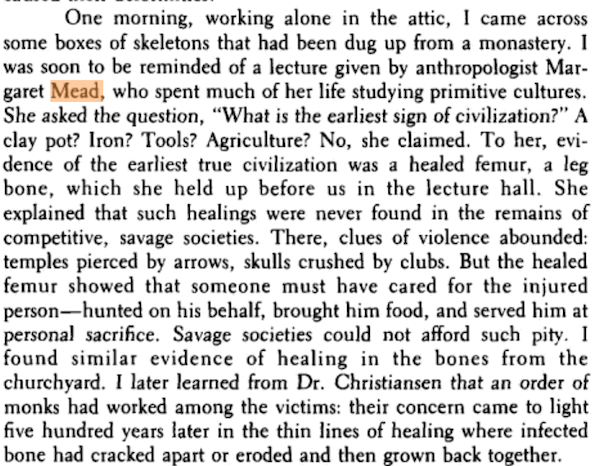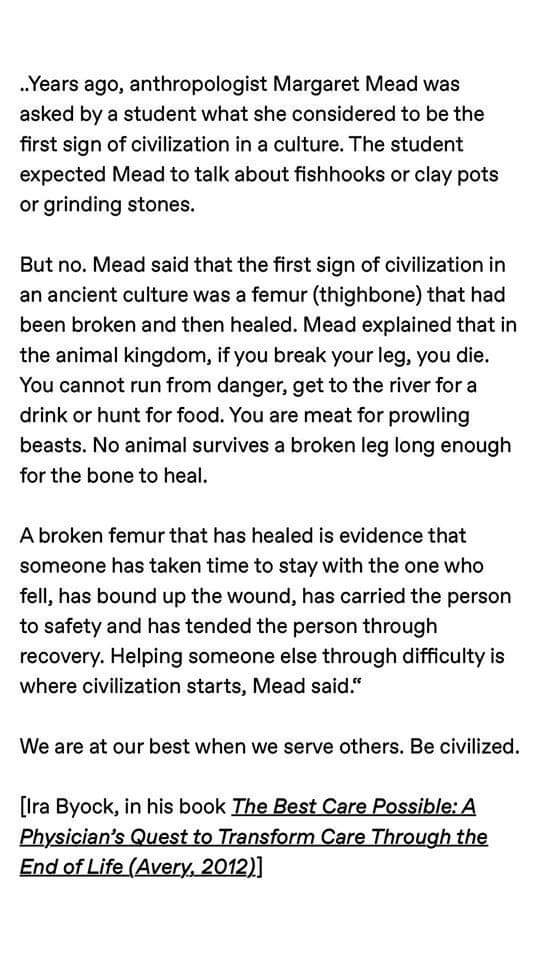(Posting this as a self-answer because it's too large for a comment, but not accepting it because it's conjecture)
Daniel R Hicks commented that he heard this "around 1980." Indeed, it appears that the earliest print citation is from precisely the year 1980, in the surgeon Paul Brand's Christian memoir Fearfully and Wonderfully Made (Grand Rapids, Mi.: Zondervan). This screenshot is from page 68. I mainly wanted to post this here to award Daniel Hicks a point for being spot-on.

This anecdote was reprinted in Brand's book Pain: The Gift Nobody Wants (1993) and probably spread widely from there. The major issue with this story is that Margaret Mead was a cultural anthropologist, not a physical anthropologist, and no one else has attested to this story.
Fearfully and Wonderfully Made was co-authored by Brand and a Christian popular writer named Philip Yancey. Having skimmed several of his books it appears to me that Yancey's favorite mode of writing is the anecdote. Brand, who was a revered doctor in his time responsible for a paradigm shift in the treatment of leprosy, wrote his own monograph on pain in 1972 but it was only 16 pages long. In various books, Yancey writes that he found a copy of that monograph in a warehouse and decided to reach out to Brand for collaboration. We have a delightful description from Brand's biographer of how that collaboration worked.
Now, with Philip the writer, Paul was the learner. He learned that
some of his paragraphs were too long. He had to find more anecdotes to
lighten the flow of his argument. When he had none, Philip was not put
off. “Come on, Dr. Brand! You can’t tell me that after thirty years as
a surgeon you have no experiences to illustrate the point you are
making! Or perhaps if you have no experiences, you should not make the
point at all. It is only valid if it has been proved in real life.” So
Paul had to go back and think and remember. He also drew [his wife]
Margaret into the project because her memory was often better than
his.
Dorothy Clarke Wilson, Ten Fingers for God: The Life and Work of Dr. Paul Brand (Grand Rapids, Mi.: Zondervan, 1983), p. 283
It appears that in order to produce longer and more appealing books Yancey plied Brand for anecdotes, which were slow and difficult in coming. I have to wonder if this quotation is some sort of accident produced from their collaboration. However, I can draw no firm conclusion from this argument from silence. It remains entirely possible that Mead or some other anthropologist said this at some point.


